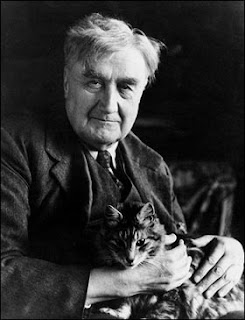A question to Jon Cruddas on Labour’s “organisational renewal”
I was fortunate to get an invite to a talk by Labour’s
Policy Review Coordinator Jon Cruddas yesterday evening hosted by the Civitas think tank in Westminster.
Cruddas made a typically interesting and enigmatic
speech, on the theme of ‘One Nation
Labour: work, family and place’ (transcript here),
outlining how the Policy Review is unfolding around these themes and exploring
them in some detail.
I won’t go into much of that detail here (click the link above to read the speech); instead I want to focus briefly on the “organisational renewal”
within Labour that Cruddas spoke about in glowing terms.
This is the attempt, led by the American community
organiser Arnie Graf, for Labour to become more connected within communities, engaging with
voters more on their terms and with less focus on “harvesting their votes”
using Voter ID data (which puts you into categories and defines you without campaigners
even needing to meet you).(For some of Graf’s own thoughts, click here).
Cruddas said that the Policy Review is proceeding “hand
in glove” with organisational renewal. “We are literally changing Labour so we
can change the country”, he said. Later on he added: “It is a cultural
reformation that is happening.”
In the Question and Answer session I put a rather pointed
question to him about this. The gist of it was as follows:
“I am particularly interested in this topic of organisational renewal, and Labour as an institution. I like what you’ve said about it here and elsewhere. I like the theory and some of the practice in what Arnie Graf is doing. But Arnie Graf doesn’t run the Labour Party. The NEC (National Executive Committee) runs the Labour Party. It sets the rules and the practices and largely sets the tone for the party. And the NEC is dominated by interest groups which in some cases engage in quite antagonistic identity politics, especially those around class and gender."So my question is that isn’t it Labour’s most important task in organisational renewal to confront its own paralysing bureaucracy, and that someday there will have to be a reckoning between the Graf approach and that of the interest groups?”
Understandably (and even, you might say, rightly!), Cruddas
largely evaded answering the question, which he addressed in conjunction with
one about the role of unions within Labour. He pointed to the effort to get
union members involved in the party as individuals, which will form part of the
reform proposals discussed by a Special Conference next March, and also the role
they have been playing in some of the Graf-led local campaigns around things
like the Living Wage and “usury” (which I took to mean the payday lenders).
He did say however that the changes being attempted represent
the “early skirmishing” within the party, adding that he is content with where
Labour is now, three years after the 2010 election defeat (which he likes to
present as one of Labour’s worst ever – something that I wouldn’t agree with).
This is fair enough. Cultural change takes time,
especially in an institution so beset with fiddly internal bureaucracy as
Labour is.
My worry remains however that the fiddly bureaucracy is
precisely what maintains the power of the powerful and their top-down approach of command and control. The big unions and women’s
lobby for example will not give up their welter of special privileges lightly.
Hopefully most people will see that opening up as a party,
becoming more democratic (not in the GDR-sense as it is now), and starting to drop the more antagonistic identity
politics, is best for everyone.
For Labour to grow into some sort of mass movement (as is
the intention), which attracts ordinary people rather than deters them, it is
surely necessary; likewise for Labour to present itself convincingly as a ‘One
Nation’ party.

Comments
Post a Comment
All comments, however critical, will be accepted as long as they are not personal and/or abusive.